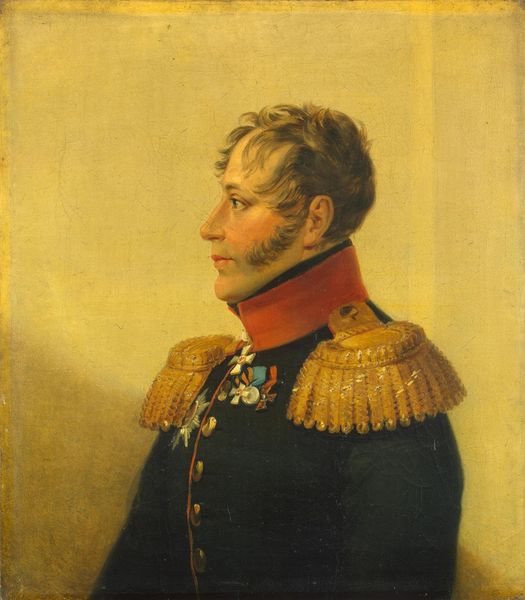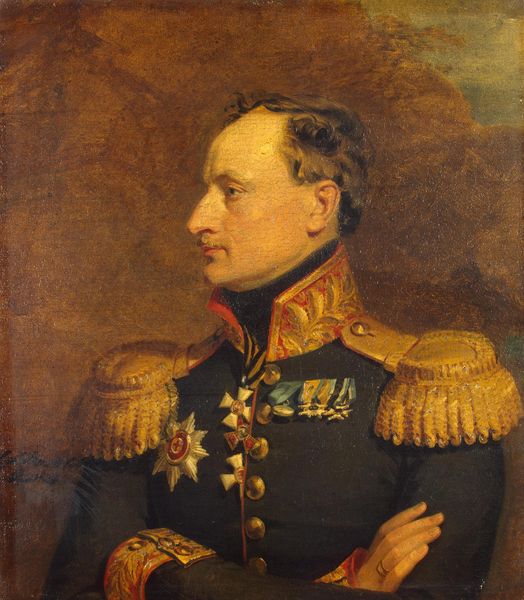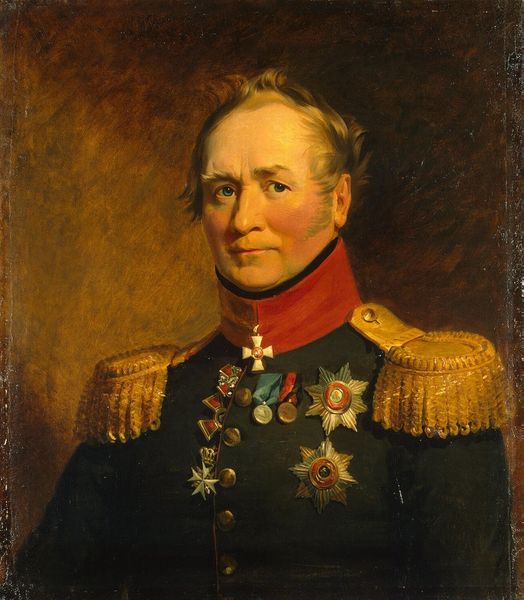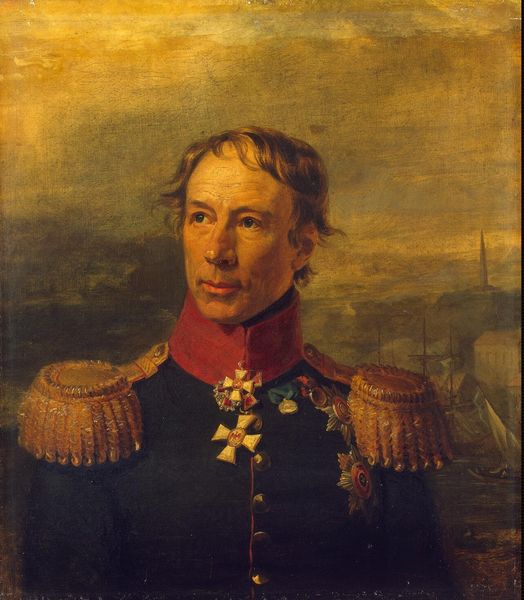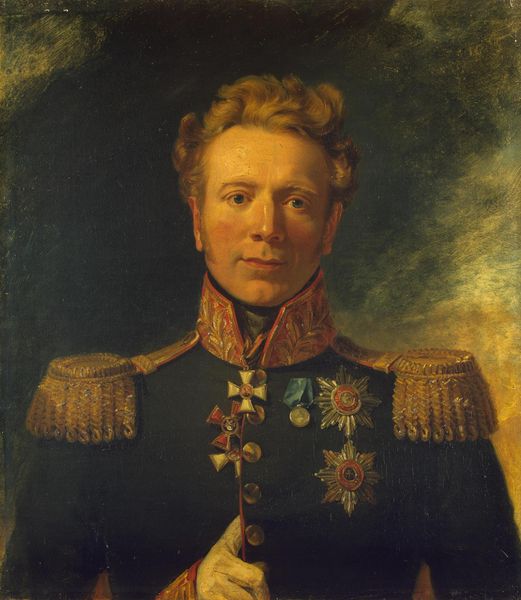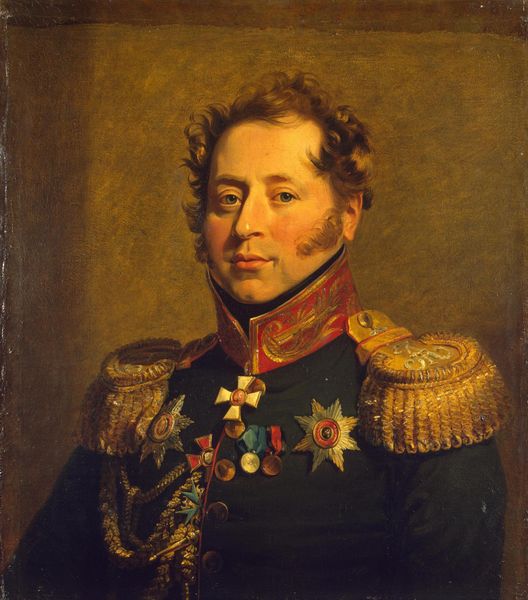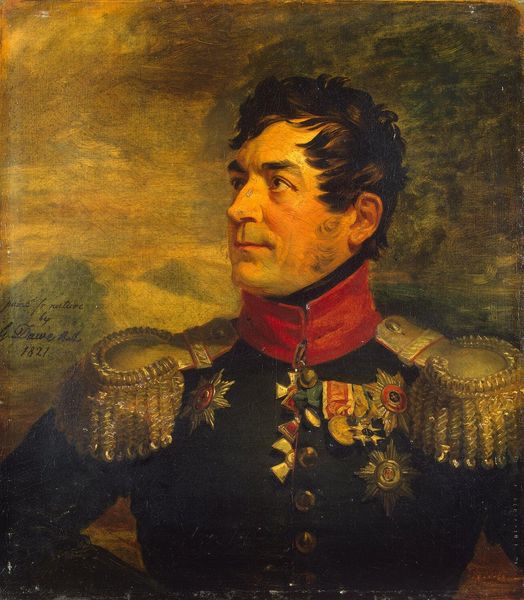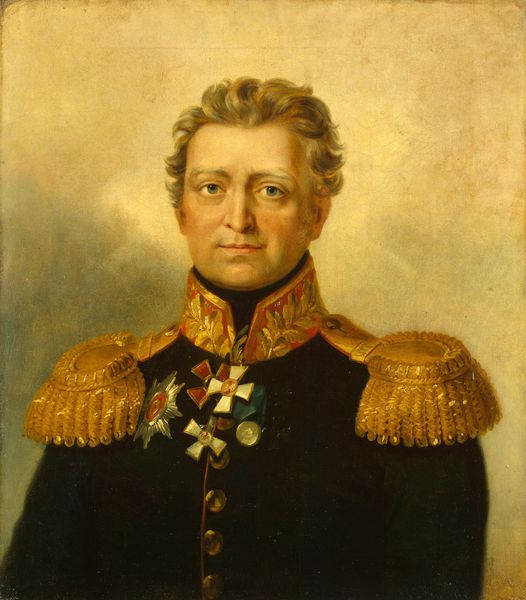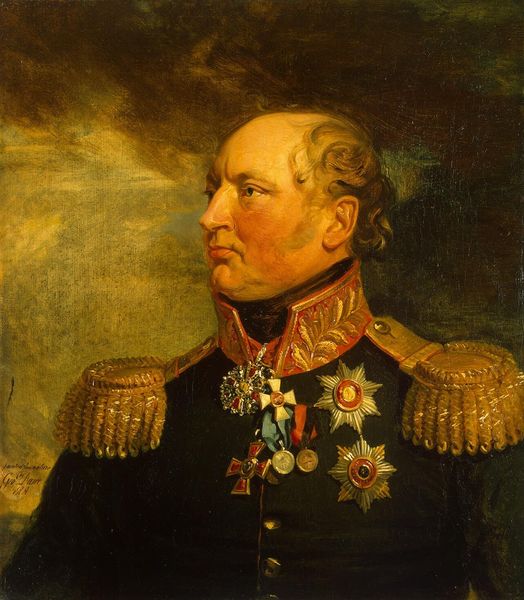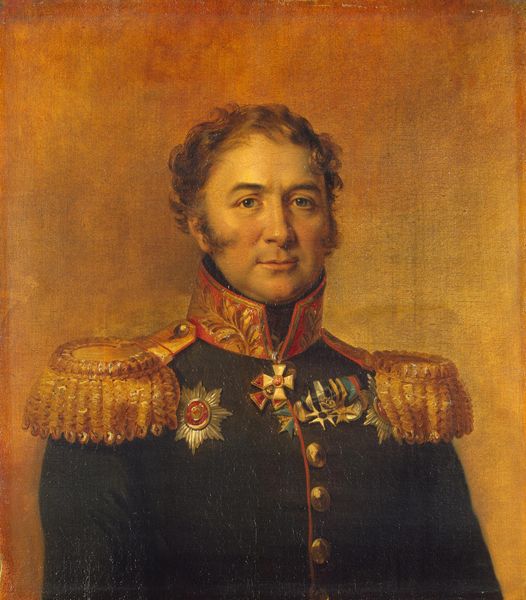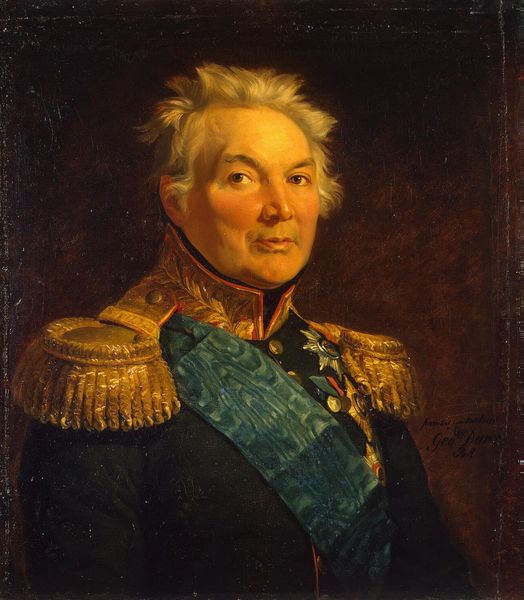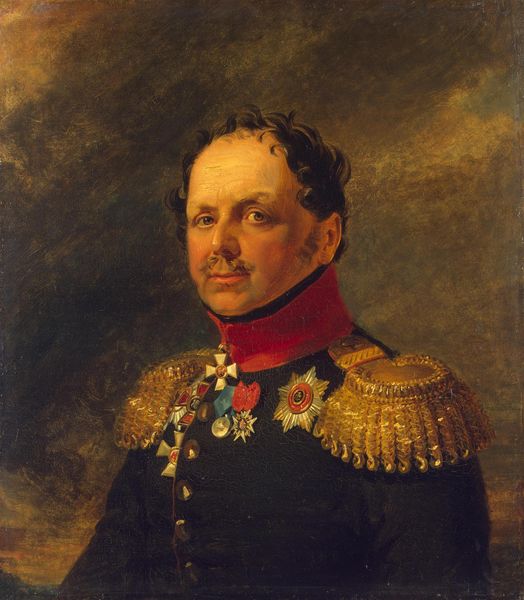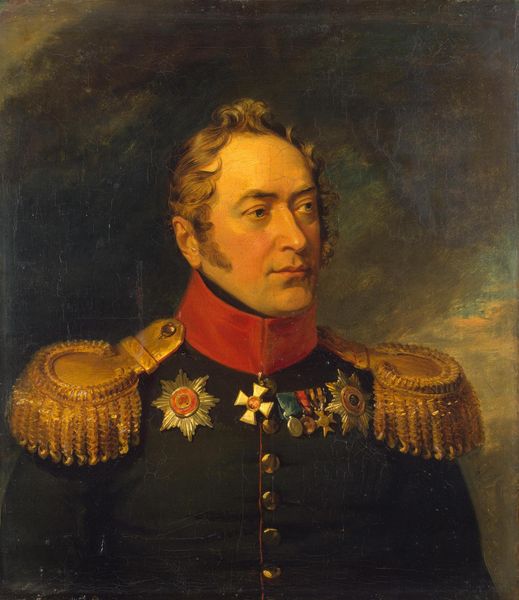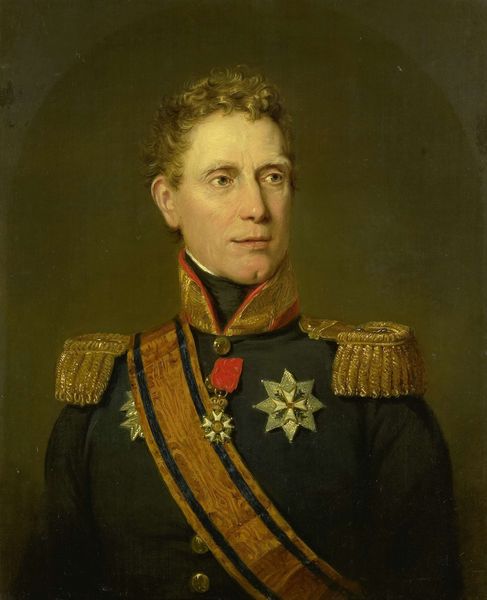
Portrait of Burkhard Maksimovich Berg, Russian Lieutenant General 1825
0:00
0:00
oil-paint
#
portrait
#
oil-paint
#
oil painting
#
portrait head and shoulder
#
romanticism
#
academic-art
#
portrait art
Copyright: Public domain
Curator: Sober. Dignified. Is that what leaps to mind? It's a remarkable portrait, really, if a bit traditional. Editor: Absolutely! I'm drawn in by his very…contained power. It feels less about personal charisma, more about… the weight of responsibility, maybe? Curator: This is George Dawe's "Portrait of Burkhard Maksimovich Berg, Russian Lieutenant General," created around 1825. A commanding oil on canvas, it now resides at the Hermitage in St. Petersburg. What do you make of his expression? Editor: Given Dawe's position at the time, it makes sense that this academic piece is rather idealized. Dawe, after all, had a contract to paint portraits of Russian generals active during the Napoleonic Wars for Tsar Alexander I. Knowing that, his somewhat blank, upward stare reads differently. Like a mask. A constructed image of duty. Curator: Perhaps! The academic style can flatten emotion in favor of archetype. There's almost a theatricality about it. Notice how the light catches the elaborate epaulettes and decorations on his uniform. They practically glow against the background. The red almost seems like… embers? Editor: I like that image of embers. It echoes the way the Romantic period aestheticizes the battlefield—the horror of it transformed into glorious, ennobling spectacle. His medals, though earned in service, almost become symbols of state propaganda. I find myself wondering, what stories lie buried beneath all that pomp and circumstance? Who *was* this man, outside the uniform and title? Curator: Ah, there’s the heart of it, isn’t it? That tension between the personal and the public self. You get that with any kind of portraiture but especially from this period. You want the truth to surface, but these images were so meticulously *constructed* for the public. Editor: Precisely. I mean, the Russian Empire, for all its supposed strength, was grappling with questions of legitimacy and national identity after Napoleon’s incursion. Portraits like this were strategic. Even the individual is subsumed in the interests of promoting an overarching vision. The cost of a carefully constructed myth, and how that manifests on his face is an exciting area of study for any viewer, I find. Curator: So we are both finding ourselves wondering if behind those decorations and carefully posed profiles, there’s perhaps something we’re *not* being shown. Editor: Yes! Which I think is more fascinating than any perfect representation could be, in and of itself. The very act of censorship invites inquiry, right?
Comments
No comments
Be the first to comment and join the conversation on the ultimate creative platform.
